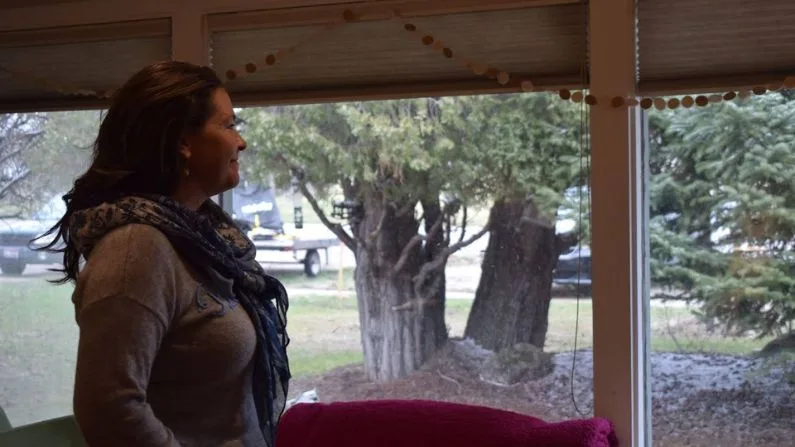Subscribe to Jackson Unpacked. Available wherever you get your podcasts.
Frida Montalvo, 20, didn’t always have the language to talk about unhealthy relationships. As a teenager in Teton Valley, she remembers one night, hanging out with friends, when she noticed a peer who was not sober, with someone being overly touchy.
“It was in that moment when I knew that if it escalated to more, it could be a very dangerous situation,” she said.
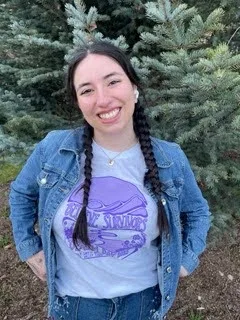
Frida Montalvo has lived in Teton Valley since she was 11 and now serves on the board of Family Safety Network in Driggs, Idaho. (Courtesy photo)
That moment led her to intern with the Family Safety Network, a nonprofit in Driggs, Idaho that supports survivors of domestic and sexual violence. Now, Montalvo sits on the organization’s board. In December 2023, she was in Victor when Kali Jean Randall, the pregnant mother of a 10-month-old, was murdered by her husband. Jeremy Albert Best pled guilty to three counts of murder in February.
After Randall’s death, Family Safety Network saw an immediate surge in demand for shelter. It hasn’t let up, according to Emily Bilcher, who leads the organization.
“December of 2023, you can really go to that month and see this exponential growth and demand for services,” she said.
When survivors of domestic violence begin to consider leaving a relationship, or even begin to think about it, one of the biggest obstacles they face is housing. In Teton Valley, Idaho, that need has newfound urgency.
In 2022, survivors spent a combined total of 146 nights in shelter through Family Safety Network, known as “bed nights” in the shelter world. The year following Randall’s murder, that number rose to nearly 1,754.
“A wild amount of people came and sought our services because that happened,” Bilcher said. “They were like, ‘When I saw that this happened, I thought this could be me.’ Or a friend bringing in a friend saying, ‘When this happened, I called her and said we gotta get you some help.’”
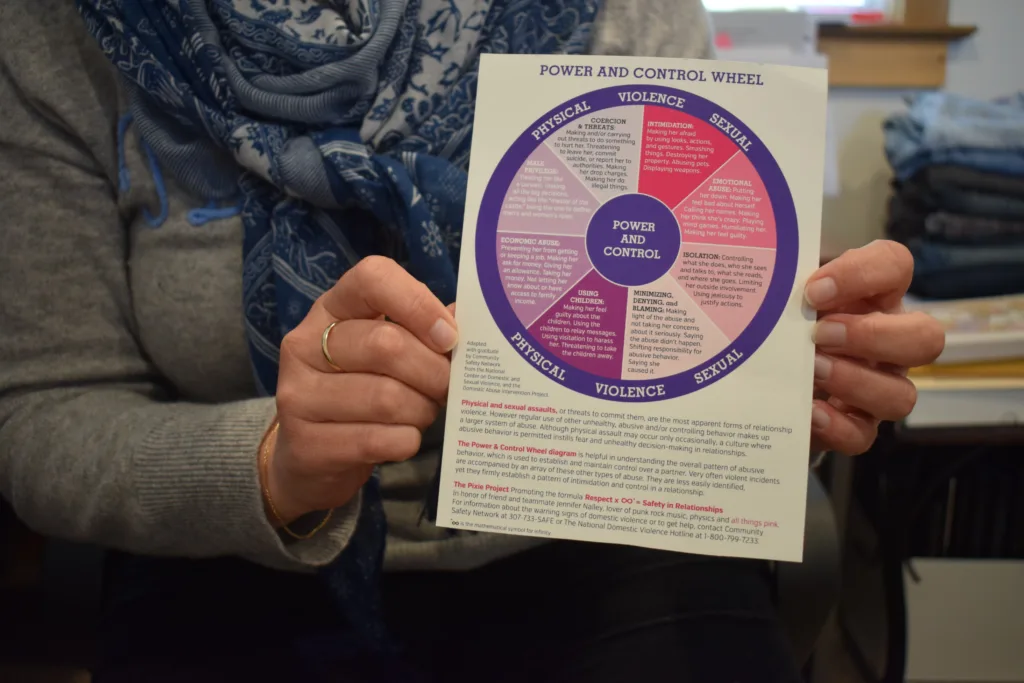
Bilcher holds the “Power and Control Wheel,” a tool to help people understand the continuum of unhealthy relationships. (Sophia Boyd-Fliegel / KHOL)
Not everyone seeking shelter has experienced violence, Bilcher said. Some are still questioning if they want to stay in their relationship, and many incidents of violence go unreported to the police. Still, that growth has far outpaced police reports of violence and intimidation or stalking, according to figures provided by the Teton County Sheriff’s Office. From 2023 to 2024, sexual assault reports were up 25% from 25 to 31 and aggravated assault reports are up 40% from 19 to 27.
The other factor in an increase in bed nights has been the region’s diminishing supply of affordable housing.
Since the COVID-19 pandemic, Teton County, Idaho’s population has increased about 25%, while the median home sale price has soared, closer to 50% growth over the last five years. That’s made it harder to find safe, affordable places to live.
Ten years ago, people seeking help might have stayed in emergency shelter for five days and a month in transitional housing. Now, Bilcher said, those stays are closer to three months for emergency housing and a full year in transitional.
Family Safety Network currently has just two physical shelter options: a three-bedroom home intended for a family with kids and a small apartment. In 2023, the organization spent over $9,000 on hotel rooms when those units were full.
They’re now trying to raise $200,000 to double their emergency shelter capacity. Plans include building a studio home in 2025 and a one-bedroom transitional housing unit by 2026.
Across the state line in Jackson, the Community Safety Network offers a glimpse of what expanded shelter could look like.
The nonprofit operates a campus with a seven-bedroom house for emergency shelter and six transitional apartments. Couches in a living room near a full kitchen give the communal home a cozy feel with access to food and toiletries in a pantry, toys for kids and pet supplies. Those in nearby transitional apartments pay rent they later get back, work on structured skill-building like financial literacy classes. They can stay on campus for up to two years.
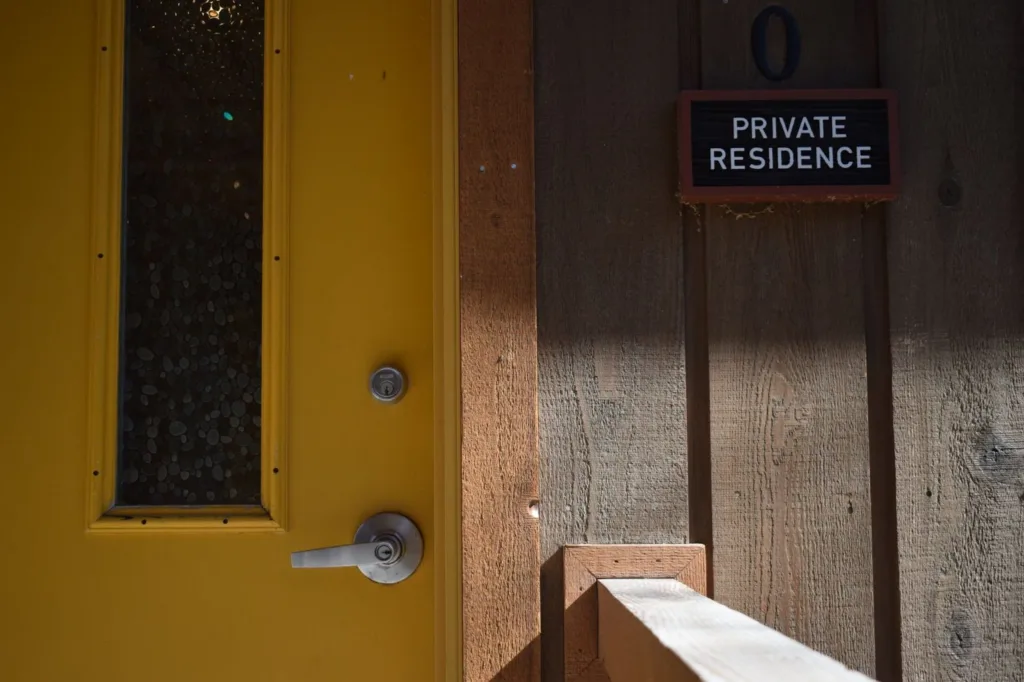
An apartment at Community Safety Network’s campus in Jackson. (Sophia Boyd-Fliegel / KHOL)
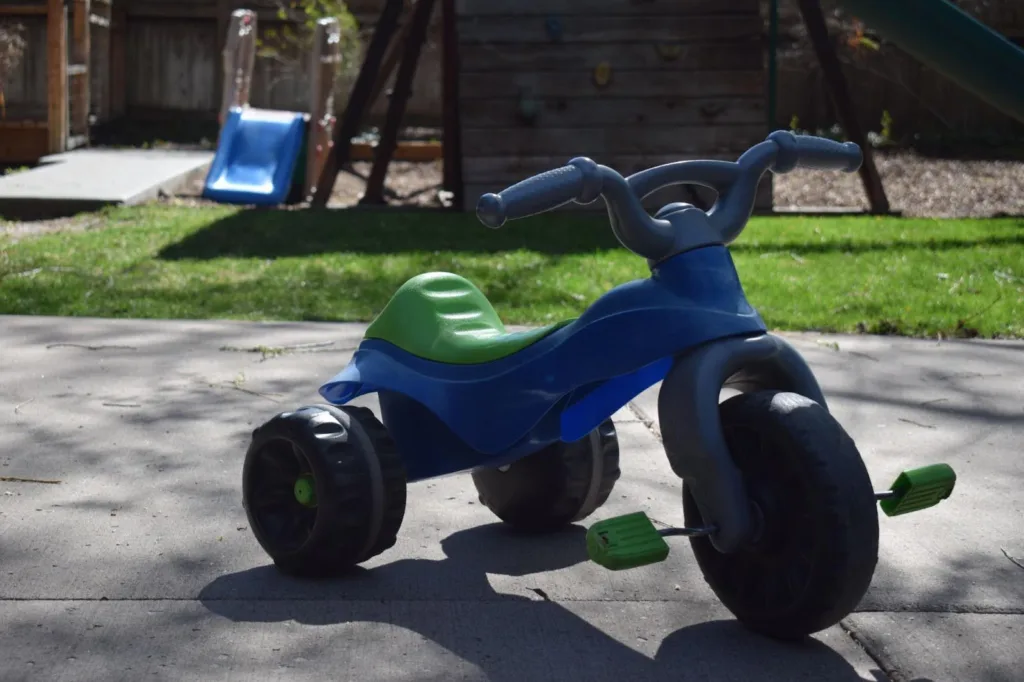
Eight children were staying in campus emergency housing in Jackson in May. (Sophia Boyd-Fliegel / KHOL)
Jackson also saw increased need for domestic violence relief during the COVID-19 pandemic, which placed more stress on relationships.
Last year was the highest number of clients served to date, said Community Safety Network Executive Director Shannon Brooks Hamby.
Still, the fluctuation wasn’t the triple-digit increases as in East Idaho, and appears to have leveled off around 2,400 annual bed nights.
Even with their larger facilities, the Jackson shelter occasionally runs out of room. Director of Client Services Rosa Sanchez said they never turn anyone away who qualifies and work with hotels when needed.
“We have to get creative with our spaces,” she said.
Keeping people on-site is not just about safety, Sanchez added, it’s about healing.
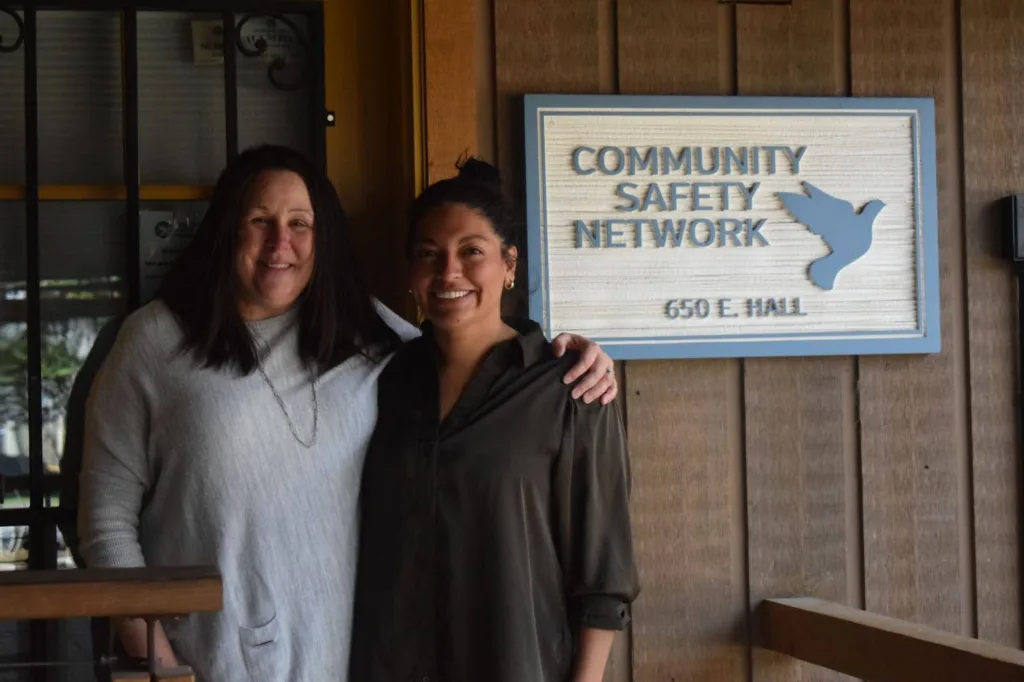
Shannon Brooks Hamby (left) and Rosa Sanchez are part of a team taking care of over 250 people a year. (Sophia Boyd-Fliegel / KHOL)
“No one wants to be in a situation that forces them to seek out this type of service,” she said. “But if you are, how can we be intentional about those spaces to make it so that people feel comfortable?”
For Brooks Hamby, the link between housing and safety is undeniable.
“Housing is probably the most critical factor in leaving an abusive situation,” she said. “Many, many people stay in situations that are unsafe because of lack of housing.”
The east Idaho community hopes expanding shelter capacity will increase space for education and prevention as they aim to change the culture upstream of violence and its bystanders. That’s what helped Montalvo find her voice.
“This fight is all of our fight,” she said. “And it requires all of us to be present.”

